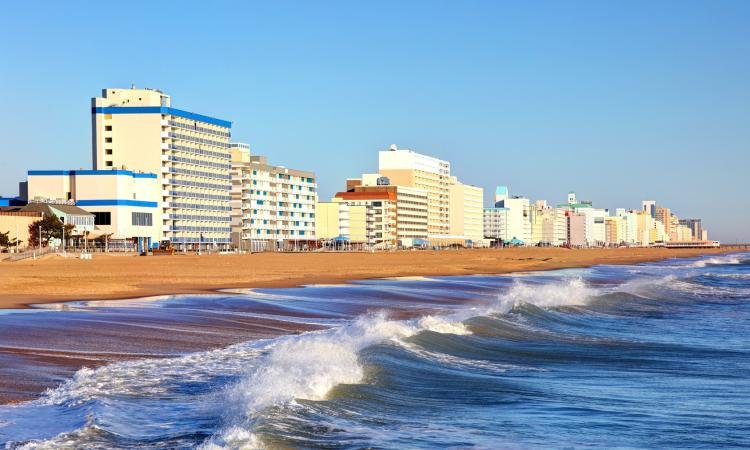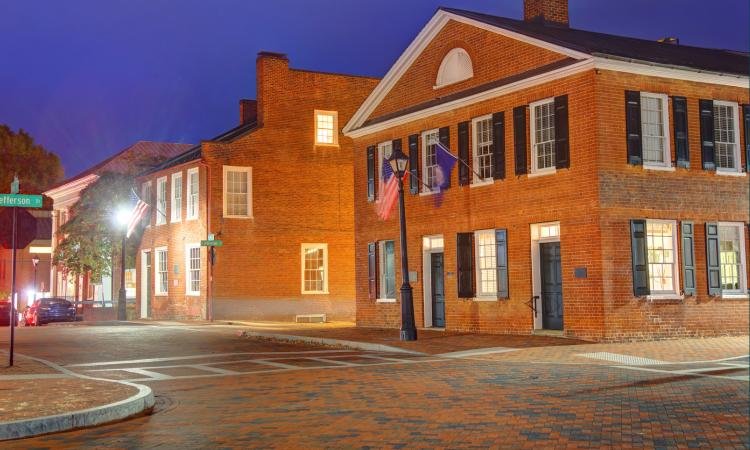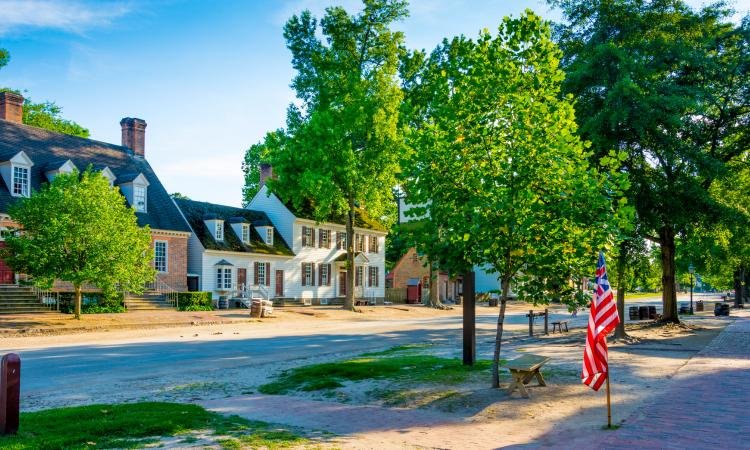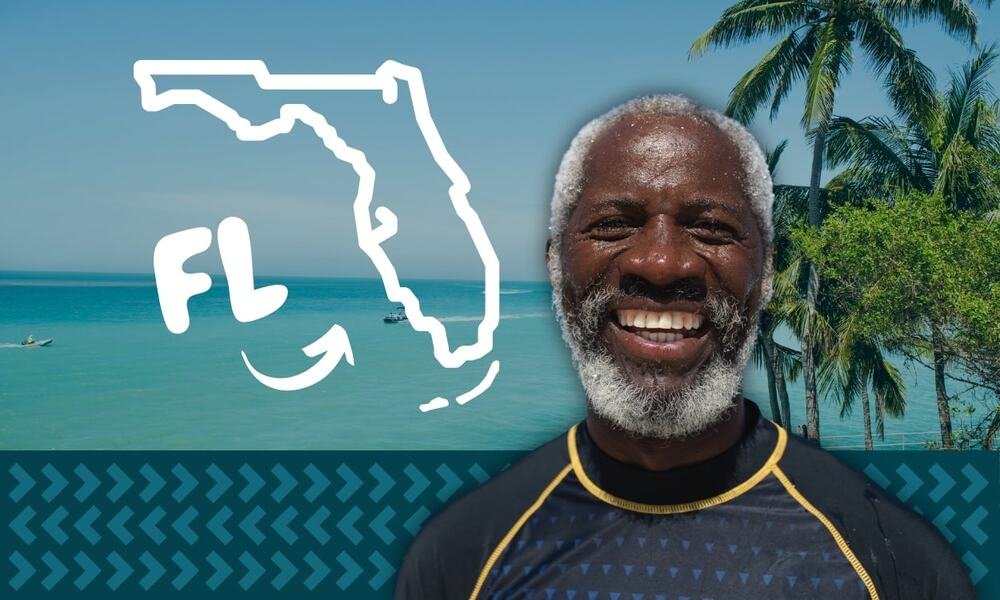
When considering retirement, the ideal destination plays a crucial role in ensuring a fulfilling and relaxed lifestyle. Virginia, known as the “Old Dominion” due to its status as the first of the original 13 colonies, offers a rich tapestry of history and natural beauty that attracts many retirees.
With its historical landmarks and significant role in American history, Virginia stands out as a unique place for settling down after years of hustle and bustle. Recent trends show Virginia climbing the ranks as a favored retirement destination, thanks to its blend of cultural richness and natural tranquility.
Is Virginia a Good Place to Retire? Pros & Cons Explained
- Why Consider Virginia for Retirement?
- Pros of Retiring in Virginia
- Cons of Retiring in Virginia
- FAQs about Retiring in Virginia
- Best Places to Retire in Virginia
- Final Verdict: Is Virginia a good place to retire?
Why Consider Virginia for Retirement?
Virginia offers a delightful mix of attractions that cater to a variety of interests. From the stunning mountain vistas of the Shenandoah Valley to the peaceful beaches of the Atlantic coast, the state is a tapestry of scenic beauty. More than just a pretty face, Virginia is also known for its affordability and pleasant climate, making it an ideal spot for retirees. Residents enjoy a plethora of activities and day trips, ensuring that there’s always something new to explore and enjoy in this vibrant state.
Virginia is an excellent retirement choice for a diverse array of personalities:
- History Enthusiasts: If you’re fascinated by America’s rich history, Virginia is a treasure trove of significant historical sites, providing direct access to the past where it happened.
- Nature Lovers: The state’s varied landscapes, from tranquil beaches to majestic mountains, offer a wealth of outdoor activities for every adventurer.
- Cultural Seekers: Culture flourishes in Virginia with its vibrant festivals, museums, and theaters, offering endless opportunities for artistic and intellectual stimulation.
- Social Butterflies: Thanks to an abundance of community events and clubs, it’s easy for newcomers to make friends, connect with like-minded individuals, and build a thriving social network.
Pros of Retiring in Virginia
Low Cost of Living
Virginia presents a significant financial benefit for retirees, thanks to its relatively low cost of living compared to many other U.S. states. Housing, healthcare, groceries, and utilities are all reasonably priced, which can be particularly advantageous for those on fixed incomes. This affordability allows retirees to live comfortably and manage their finances without undue stress.
Tax Benefits
One of the standout financial benefits of retiring in Virginia is its favorable tax policies for retirees. The state exempts Social Security income from taxes and provides deductions on other retirement income types. Additionally, property taxes are relatively low. These advantages can significantly enhance your budget and savings, making Virginia an attractive option for a financially comfortable retirement.
Pleasant Climate
Virginia is celebrated for its mild climate, featuring four distinct seasons (including a famously colorful fall in the Blue Ridge Mountains) that cater to a variety of outdoor activities and lifestyles. Retirees in Virginia can relish the vibrant fall foliage, experience mild winters, enjoy pleasant springs, and bask in warm summers. This diversity in weather facilitates an active lifestyle all year round, making it ideal for gardening, golf, hiking, and more.
Here’s a closer look at the seasonal weather patterns in Richmond, VA, according to Weather Spark:
- Summer: July sees average highs around 88°F.
- Winter: January has average lows around 30°F.
- Snow: The snowy period extends from November 24 to March 17, with February typically seeing the most snow, averaging 4.7 inches.
- Rain: Rain is distributed evenly throughout the year, with August recording the highest average rainfall at 3.6 inches.
- Sunshine: Richmond enjoys approximately 206 sunny days per year.
This climate allows for a comfortably varied environment, perfect for those looking to maintain an engaging, active lifestyle in retirement.
Healthcare Facilities
Virginia is home to some of the nation’s top-rated healthcare facilities, enhancing its appeal as a retirement destination. Eight hospitals in the state are among Healthgrades’ America’s 250 Best Hospitals™, placing them in the top 5% nationwide for overall clinical excellence. Notable among these are:
- Bon Secours St. Francis Medical Center in Midlothian, VA
- Inova Alexandria Hospital in Alexandria, VA
- Inova Loudoun Hospital in Leesburg, VA
These facilities, along with numerous specialty clinics, provide retirees with access to exceptional healthcare services, offering peace of mind concerning medical needs.
Virginia also performs well in national healthcare rankings:
- U.S. News & World Report ranks Virginia 19th overall for healthcare, with specific scores of 22nd in healthcare quality, 20th in public health, and 14th in healthcare access.
- According to the Healthcare Value Hub’s 2022 Healthcare Affordability State Policy Scorecard, Virginia stands 14th out of all 50 states and DC in terms of healthcare affordability.
Furthermore, Virginia boasts the lowest annual private health insurance premiums in the country, averaging $5,172, which is significantly lower than the national average of $7,549. This affordability in healthcare costs is yet another reason why Virginia is a favored choice for retirees.
Cultural and Recreational Opportunities
Virginia is a cultural hub with numerous museums, historic sites, theaters, and galleries. Festivals and community events provide a lively atmosphere that enriches the lives of its residents. For those who enjoy nature, the Blue Ridge Mountains and numerous state parks offer abundant recreational opportunities.
Community and Social Engagement
Many cities and towns in Virginia are known for their strong sense of community and active social scene for seniors. From volunteer opportunities to senior centers and clubs, social engagement is high, making it easy to form new friendships and community connections.
Bonus Pro: Proximity to Major Cities
Virginia’s strategic location offers easy access to several major cities like Washington, D.C., Raleigh, North Carolina, and Charlotte, North Carolina providing the benefits of urban living without the need to reside in a bustling city. Every town in Virginia, even the smallest and most remote, is at most a three-hour drive away from one of these major cities. This proximity allows retirees to enjoy quiet, suburban or rural life while being just a manageable drive away from the exciting amenities and resources of the capital.

Cons of Retiring in Virginia
High Cost of Living in Certain Areas
While Virginia is generally affordable, the cost of living can vary significantly across different areas, with Northern Virginia being notably more expensive. This region, particularly within commuting distance of major cities, tends to have higher living costs, which might be a consideration for retirees. Here are some of the more costly locations along with their cost of living scores and housing prices:
- Fairfax: Cost of living score of 142.4, which is 42.4% higher than the national average. Median list prices range from $824,990 to $1,249,999, depending on the zip code.
- Falls Church: Cost of living score of 177, which is 77% higher than the national average. Median list prices vary from $279,500 to $2,050,000.
- Alexandria: Cost of living score of 144.7, which is 44.7% higher than the national average. Median list prices range from $347,500 to $1,199,000.
For retirees seeking more budget-friendly options, Virginia also offers several affordable retirement destinations such as Abingdon, Roanoke, Hopewell, and Winchester, which fit a wider variety of budgets. These areas provide a more cost-effective alternative while still offering the benefits of living in Virginia.
Adverse Weather Conditions
While Virginia generally boasts a mild climate, it is important to acknowledge certain weather-related challenges:
- Hurricanes and Nor’easters: Parts of Virginia, especially the coastal areas, are vulnerable to hurricanes and nor’easters. Hurricane Matthew was the last major storm to significantly impact the state, affecting coastal regions.
- Humidity and Heat: The summer months can bring high humidity, particularly in the southeastern parts of the state. This humidity, combined with high temperatures that occasionally exceed 110 degrees in Northern Virginia, results in discomfort and the issuance of excessive heat warnings.
- Severe Storms: The intense summer heat and humidity often lead to severe and potentially dangerous storms. In fact, severe storms are the most common cause of natural disasters in the state, accounting for 44.9% of all such incidents.
Despite these weather-related challenges, Virginia is still considered one of the friendlier weather states, with less exposure to extreme weather phenomena like tornadoes and severe winter storms compared to other areas. However, it’s wise for residents and visitors to have strategies in place to stay cool and safe during the hotter months.
Transportation Challenges
Traffic between Richmond and Washington D.C. is known to be a challenge. Virginia grapples with significant transportation issues.
The stretch of southbound Interstate 95 from the Fairfax County Parkway to Fredericksburg is the worst traffic hotspot in the U.S., according to Inrix.
As if congestion on the roads wasn’t enough,, Virginia Beach ranks as the city with the worst drivers in the nation based on accidents, DUIs, and other violations, as reported by QuoteWizard in 2023.
If these figures make you want to stay off the road, taking the train is an option in some parts of the state. Regional rail routes connect Richmond to Washington D.C., and extend to New York City and Boston, while Amtrak offers additional services from Charlottesville to these major cities.
Airports are a mixed bag. Norfolk International Airport is noted as one of the worst for holiday travel by Forbes Advisor, while Richmond International Airport has been recognized for its efficiency by the Air Transport Research Society.
Seasonal Tourist Influx
Seasonal tourist influxes affect popular destinations like Virginia Beach (named one of TripAdvisor’s 10 most popular summer destinations in the U.S. in 2019) and the historic Triangle of Williamsburg, Jamestown, and Yorktown. During peak seasons, these areas experience increased traffic, higher prices, and overcrowded attractions, which may be less appealing for some retirees seeking quieter, more relaxed environments.

FAQs about Retiring in Virginia
What are the tax benefits for retirees in Virginia?
Virginia offers several tax advantages for retirees, including no taxes on Social Security benefits and deductions on other retirement income. Additionally, the property tax rates are relatively low, which helps manage expenses better.
How does the cost of living in Virginia compare to other states?
The cost of living in Virginia varies widely by region. While Northern Virginia is quite expensive, other parts of the state, like Southwestern Virginia, are much more affordable, offering a lower cost of living than many other U.S. states.
What are some of the best places to retire in Virginia?
Top places to retire in Virginia include Charlottesville, known for its vibrant arts and culture scene; Roanoke, with its beautiful mountain views and friendly community; and Williamsburg, offering a blend of history and modern amenities.
Best Places to Retire in Virginia
Virginia is brimming with excellent retirement options, each appealing for different reasons depending on your preferences. Our list of budget-friendly retirement destinations in Virginia is a great starting point for discovering some of the state’s hidden gems. Here’s a snapshot of three cities that represent the diverse offerings across the state:

Charlottesville
- Population (2024): 44,281
- Cost of Living Score: 105.2 (5.2% higher than the national average)
- Median listing price: $615, 000 – $947,450 (depending on zip code)
Charlottesville is a prime destination for retirees who cherish a vibrant cultural scene alongside top-notch healthcare facilities, making it an ideal choice for those who desire both cultural engagement and robust health support. As home to the University of Virginia, the town pulses with a lively, fun energy on game days, adding a unique vibrancy to this quaint college town. Additionally, its proximity to the Shenandoah Valley offers easy access to hiking and scenic drives, further enhancing its appeal as a retirement location.
Roanoke
- Population (2024): 95,811
- Cost of Living Score: 80.9 (18.1% lower than the national average)
- Median listing price: $357,028
Roanoke is renowned for its stunning scenery and abundant outdoor activities, providing an excellent quality of life at an affordable cost. Nestled in the Blue Ridge Mountains, it offers easy access to the Appalachian Trail and the Blue Ridge Parkway, perfect for hiking and scenic drives. Additionally, Roanoke’s vibrant downtown features cultural attractions like the Taubman Museum of Art and a bustling market square. This combination of natural beauty, cultural richness, and affordability makes Roanoke an appealing choice for retirees.
Williamsburg
- Population (2024): 16,350
- Cost of Living Score: 94.9 (5.1% lower than the national average)
- Median listing price: $499,000 – $502,495 (depending on zip code)
Williamsburg is ideal for history buffs, offering a balanced community with easy access to modern conveniences. This city merges historical depth with contemporary amenities, making it perfect for those who enjoy living at the intersection of history and modernity. From Colonial Williamsburg to modern shops and healthcare, Williamsburg caters to both past and present needs.

Final Verdict: Is Virginia a good place to retire?
Absolutely, Virginia offers a unique combination of affordability, rich history, diverse cultural offerings, and excellent healthcare. With its scenic beauty and friendly communities, it’s a state that caters to a variety of lifestyles and interests. Consider Virginia as your retirement destination to enjoy a balanced and enriching lifestyle.
Encourage yourself to explore all that Virginia has to offer for a fulfilling and vibrant retirement. Whether you’re drawn by its history, culture, or natural beauty, Virginia provides a compelling case for being one of the top states to consider for your golden years.

